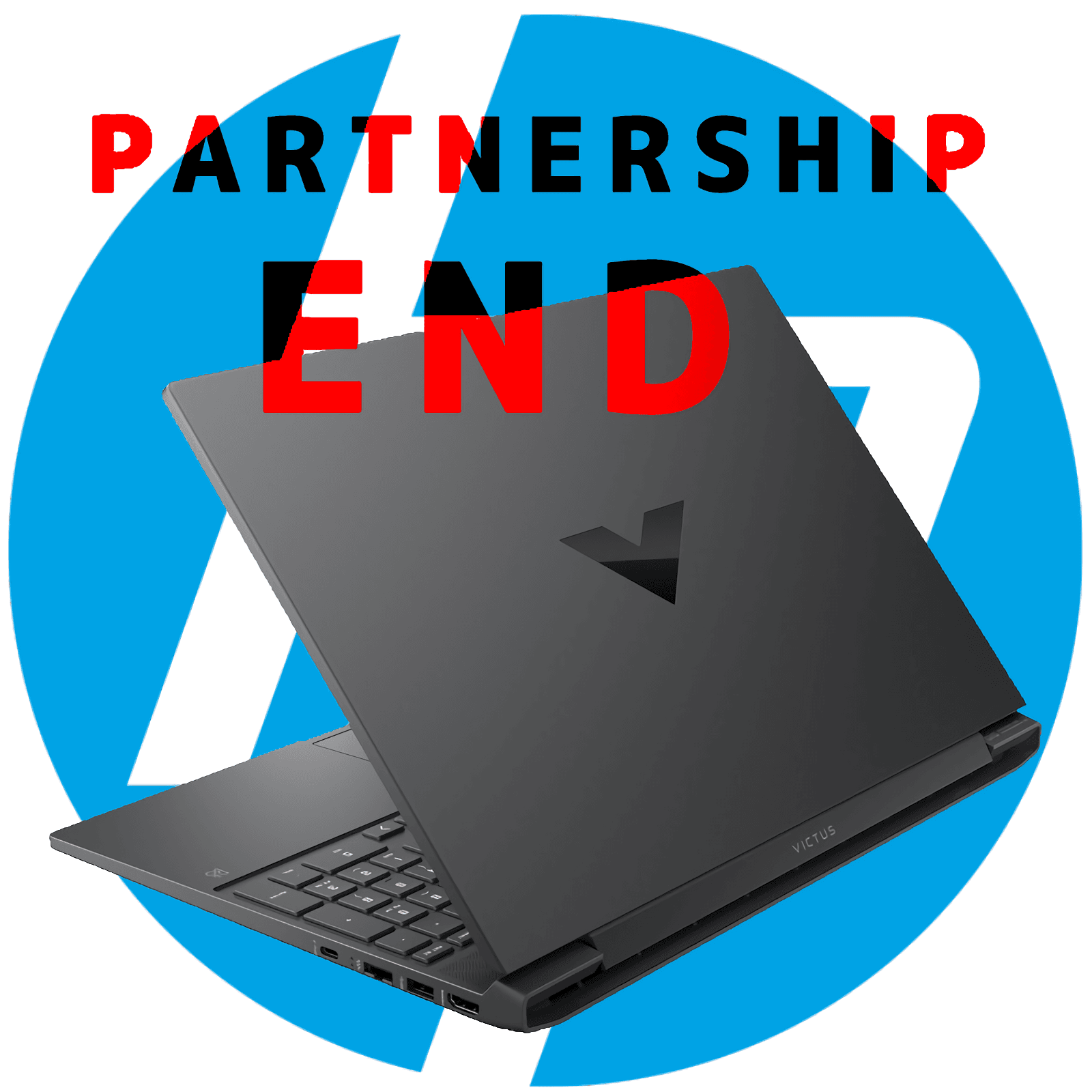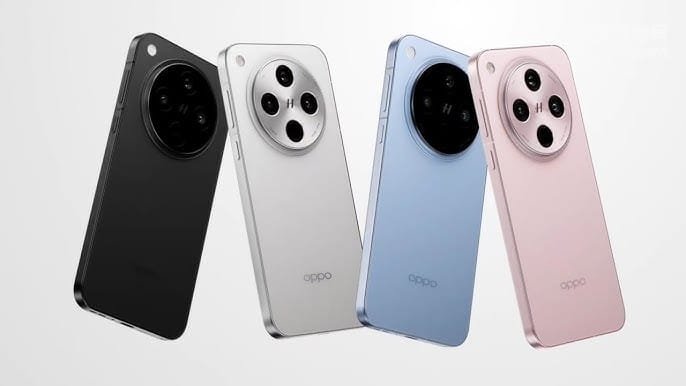HP Inc. is likely to end of the Victus gaming laptop line due to growing criticism over product quality and performance.
The series was launched in 2021 as a mid-range variant between HP’s Pavilion Gaming and Omen series, but the company had envisioned Victus to be the more affordable variant for gamers.
As a result of failure to deliver quality, reliability, and performance for consumers, the sales declined, and its reputation started to tarnish.
This article explores the various that may lead to the end of partnership, including product shortcomings, market challenges, and declining sales trends. It also examines the future implications for HP and its positioning in the gaming laptop market.
The Vision Behind Victus
HP launched the Victus brand with the aim of providing an affordable gaming laptop range that didn’t compromise heavily on performance.
It was positioned as a step above the Pavilion Gaming series but below the premium Omen line. Victus laptops boasted sleek designs, modern processors, and gaming-oriented features like higher refresh rate displays and dedicated GPUs.
However, these selling points were undermined by quality issues and an inability to compete effectively in a saturated market.
HP Ends Partnership with Victus Following Gaming Laptop Quality Concerns
HP Inc. may stop the Victus gaming laptop series, a product that had received increasing criticism over quality and performance. A close source in HP revealed this to The Philox Team. However there is no offiical confirmation as such. But we have data and statstics to corroborate the tlikely outcome.
Launched in 2021 as a mid-range option between the Pavilion Gaming and Omen series by HP, Victus was supposed to be a more affordable option for budget-conscious gamers. However, poor quality, reliability, and performance resulted in dwindling sales and a blemished reputation.
This article explores the product shortcomings, market challenges, and declining sales trends. It further traces future implications for HP and its positioning in the gaming laptop market.
The Vision of Victus
HP came out with the Victus brand in order to make an affordable line of gaming laptops without sacrificing too much performance. It was more than Pavilion Gaming but less than the Omen line, which was premium.
These Victus laptops had great looks, current processors, and features geared toward gaming like higher refresh rate displays and dedicated GPUs. Quality issues and the inability to gain traction in a crowded marketplace, however, undercut the selling points of these laptops.
Decreasing Sales: A More Significant Problem
These product defects also reflected in terms of revenue. The three-year sales trends of the Victus series are shown in the graph below:
| Year | Units Sold (in millions) | Year-over-Year Change |
|---|---|---|
| 2021 | 1.2 | – |
| 2022 | 0.9 | -25% |
| 2023 | 0.5 | -44% |

This sales drop, apart from being a quality issue, was due to the huge competition from brands such as Dell’s Alienware, ASUS’s ROG, and Acer’s Nitro. People were easily diverted towards more reliable and value-efficient alternatives.
Major Problems of Victus Gaming Laptops
The Victus line received endless criticism by many, including performance at stress and build quality. Below are some major drawbacks the brand suffered:
1. Build Quality
One of the greatest criticisms against Victus laptops is that they are made too heavily of plastic. While most gaming laptops are made very light so that they can easily be carried around, the Victus models were perceived to be flimsy.
Problems like unstable hinges causing the screen to wobble and a flimsy keyboard structure added to the concerns over its durability.
While many consumers and reviewers commented that the laptops failed to exude a premium feel, akin to that of competitors in this price range-for instance, Lenovo’s Legion series or ASUS’s TUF line-the reliance on budget materials worked against brand reputation.
2. Poor Thermal Performance
Effective thermal management is critical for gaming laptops, especially those that have high-performance CPUs and GPUs. Unfortunately, the Victus series failed in this regard. The laptops suffered from heat dissipation issues when subjected to heavy gaming or multitasking, resulting in thermal throttling and a drop in performance.
The Victus laptops showed higher temperatures and lower clock speeds during comparative testing than competitors like ASUS ROG and Acer Predator models.
This was because the limited heat pipe and fan configuration proved to be not sufficient in handling demanding workloads.
3. Display Quality
The Victus laptops offered generally low-class IPS panels with low brightness and decreased color accuracy. Testing found the screens to cover about 62.5% of the sRGB color gamut, which made them too weak for users who want vivid colors either for gaming or creative use.
Also, the lack of HDR support and relatively low refresh rates in some configurations made Victus laptops less competitive in a market where immersive displays are often a key selling point.
4. Battery Performance
Although gaming laptops are not particularly renowned for great battery life, Victus models fell behind industry norms.
With a 70Wh battery capacity, the laptops provided an average of 7–10 hours for non-intensive use but ran out of juice when used for gaming or other high-performance tasks. This characteristic made them less appealing to gamers on the go.
5. Poor Market Differentiation
The Victus line was sandwiched between HP’s Pavilion Gaming series and its premium Omen lineup, creating some identity crisis.
Customers often reached for the Pavilion models on account of price or upgraded to the Omen series, which was much better and more powerful. This in turn led to Victus not finding its niche, especially in such a tight gaming laptop market.
Strategic Decision: Ending the Victus Line
In response to these challenges, HP has decided to discontinue the Victus brand and reallocate resources to its more successful product lines. The company aims to streamline its gaming laptop portfolio by focusing on the Pavilion Gaming series for entry-level users and the Omen series for premium buyers.
This move is in line with HP’s overall strategy to adapt to changing consumer preferences and meet the increasing demand for reliable, high-performance laptops. It also reflects HP’s recognition of the need to consolidate its market position in the face of fierce competition.
Lessons Learned and the Future of HP Gaming Laptops
Victus can teach HP many things with regards to how much should one spend on quality and how much on affordability when balancing out the market.
Its main competition in the future could be a consumer-centric firm, which will highlight HP’s innovation, durability, and performance in gaming solutions.
Omen will likely be the flagship lineup under which HP will make its move to take the gaming market, as it has been well above Victus both in reviews and sales.
The company is also expected to do improvements for the Pavilion Gaming series, to be more appealing to budget gamers without sacrificing important features.
The likely discontinuation of the Victus brand brings a massive change in HP’s approach towards the gaming laptop market. Although Victus had potential as a mid-range gaming solution, it possessed numerous shortcomings, ranging from build quality to thermal management, that prevented it from achieving its goals. In addition, the steady sales decline underlined the brand’s failure to resonate with the consumers in a highly competitive marketplace.
As HP moves forward, its focus on the Omen and Pavilion Gaming lines signals commitment to delivering products that better meet the demands of gamers and tech enthusiasts. This is not only a strategic realignment but also a testament to the quality, performance, and market positioning required to sustain success in the gaming industry that is constantly changing.









I’m a sale’s excutive i have sold the victus laptop & I was get very honestly good reviews if hp left the partner ship with victus hp company get big loss i know compair to other brand some models price was high but ok victus models was fight competitor model & brand but I was enjoy to sale victus laptop
Bro i just bought it a month ago😭
I am using HP Victus, for programming, and I have not faced any issue till now. However, like the present generation of laptop, or rather so-called “thin and light laptops”, heat exhaust is always an issue as the vents are primarily positioned below, unlike sideways like used to have in previous laptops.
“Thick and heavy” are often much more reliable and long lasting.
I bought HP Victus few months back and l faced an issue with its launch. One day it simply went on sleep mode or suspend mode where its power button was blinking and failing to start. Luckily it was under guarantee and Computer store could not fix the issue or they couldn’t find out the reason so they replaced it with newer model with some cost addition … well now i don’t even know how to react…I feel I shouldn’t have gone for it.. but overall i was satisfied with performance though